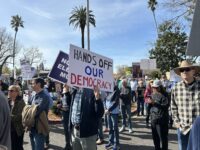 Oh, the stories we tell ourselves! Some of them are funny, some not so much, and some of them are, well, are downright dangerous.
Oh, the stories we tell ourselves! Some of them are funny, some not so much, and some of them are, well, are downright dangerous.
It’s not like this is something new. Human beings have been dubbed “toolmakers” but our real and original talent is making up stories. I’m not saying human beings are liars, though that certainly happens often enough to make a good case. Rather, people are always looking for good reasons why things happen, and when none can be found making up stories fills the bill.
“The world is flat” was a good story, that is until it wasn’t. Same for the cosmos revolving around the Earth, stars affixed in a rigid plane at the edge of space, celestial aether, and, may I dare to say, various conceptions of gods, God and divinity. In fact, for much of history, stories about God dictated what other types of stories were acceptable. Cross the line, and “boom”…down comes the Inquisition! Thus Giordano Bruno, who around the year 1600 proposed that the universe was infinite and that “all things are in all things” and “all things are in each thing” found himself burned at the stake for heresy.
Though today we speak easily of an infinite universe, for hundreds of years such thoughts were ruled improper. In that sense, doctrine and dogma were the fodder for learned ignorance, adherence to forms of fundamentalism which discouraged and punished freedom of thought and growth of knowledge. The sacrifice of those who “bucked the system” and gave their lives for the value of new ideas has advanced human consciousness and the betterment of society.
Learned ignorance often depends upon the power of fundamentalism, and this remains true today. The late Supreme Court Justice Antonin Scalia, clearly a bright, articulate and well-educated man, nonetheless adhered to a form of political Fundamentalism we could call “originalism.” He believed that the U.S. Constitution, written hundreds of years ago, was in his words, “dead,” in other words, fixed in its meaning – absolute, unalterable, static. Now that’s a heck-of-a story, particularly since no authors of the Constitution are around to answer questions.
Religious fundamentalism insists that there is only one correct view, only one correct interpretation, only one correct way to think and to behave; it effectively declares the end of history. This particular story inevitably has led to bonfires of burning books, beheadings, and war, and still does. Fundamentalism is intrinsically undemocratic and totalitarian; when used in support of public policy, it attempts to “turn back the clock” to a time when people thought the “right” thoughts and did the “right” things, running headlong into the awkward reality that people change and so do their stories.
There can be no learned ignorance without its being taught. Paradoxically, we cannot help but teach ignorance; we only know what we know, after all, and if history confirms anything, it’s often that what we know is proven to be false over time. When an assumption of knowledge is actually belief, and when attachment to belief becomes absolute certainty, each of us is in danger of falling into a fundamentalist trap.
We live in a world of unfathomable complexity, a matrix of interpenetrating stories often based on learned ignorance. When stories are imposed as fundamentalist reality they come into conflict. All too often, when that happens, innocent people with differing stories die.





Larry…… you make excellent points…… But in reality ….. all history is just a story….It is not real…..So what else is there but stories…?? Different people look back and tell different stories………. These stories inform the present as we move into an illusionary future…….SO ,,,,,What is the story ??? Depends on who is telling it…..